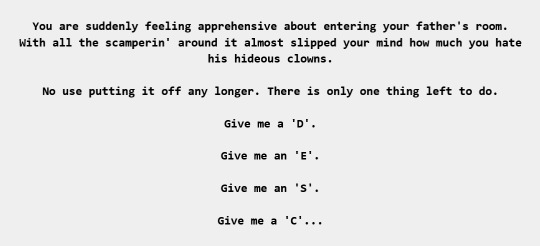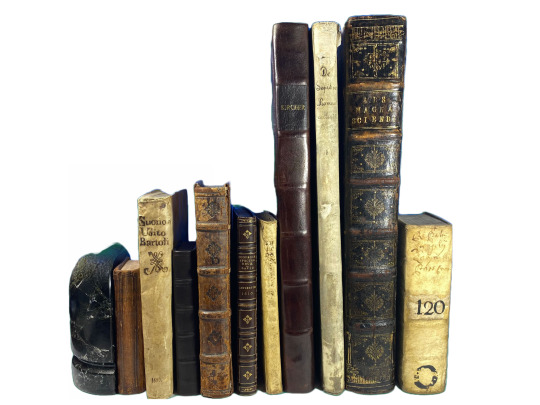#meditationes
Explore tagged Tumblr posts
Text

9 notes
·
View notes
Text
No one hmu, I’m being completely normal about the AI.
#character ai#i’m being so normal about this#just normal feelings#yes I’m dying in the ai uprising#it’s like maladaptive daydreaming with another thing#if I had this in 2021 I wouldn’t have given myself pyschosis trying to go to other dimensions#meditationers pyschosis will GET YOU
2 notes
·
View notes
Text
The Neverending Journey: How a Childhood Rule Blossomed into a Lifelong Love of Learning
Daily writing promptDescribe a decision you made in the past that helped you learn or grow.View all responses There’s a certain magic to a well-worn childhood memory, a touchstone that continues to shape your journey long after the initial experience. For me, one such memory revolves around a seemingly mundane rule set by my mother since when I was 4: to not play until I finished reading and…

View On WordPress
#Buddhism#Buddhist#Buddhist teachings#choice#dailyprompt#dailyprompt-1911#Dalai lama#decision#Dharma#Francis Bacon#Grow#Growth#knowledge#knowledge map#learn#Mary Pope Osborne#Meditationes sacræ#Philosophy#Raffaello Palandri#Voltaire
1 note
·
View note
Text
i completely forgot this until i was about to add my recent reads to goodreads but the last time i’d read descartes’ meditations apparently it was the fourth time i’d read it for class and i’d added to myself “istg if i have to read this one more time” :):) and yet
#yea yea cogito ergo sum i get it#i think i've read it every year from 12th grade to the last year of university#and now in grad school too lmao#more like lego meditationes ergo discipulus sum
1 note
·
View note
Note
What books do you think Veritas would read in his free time?
(By the way, your fanfics are 😩😩
Always making me kick my feet and giggle fr😤)
This is based on the things he referenced and my personal head-canons <3, hdjshdjdh thankuu for supporting me !
Discourse on the Method - René Descartes
Thus Spoke Zarathustra - Friedrich Nietzsche
The Stranger - Albert Camus
Meditationes Sacrae - Francis Bacon
Epistulae Morales ad Lucilium - Lucius Annaeus Seneca
Republic - Plato
Apology - Plato
Also feel free to add more since I want to know everyone’s thoughts on this !!
#honkai star rail#dr ratio#he’s a big plato/socrates fan boy istg#also i hc him reading The Stranger and think of it as an interesting view in life
29 notes
·
View notes
Text

Juan de Torquemada/Johannes de Turrecremata*, spanish cardinal (1388-1468), Meditationes, seu Contemplationes devotissimae, page depicting the Nativity (Geburt Christi), Rome, by Ulrich Han, 31-12 -1467. Stadtbibliothek im Bildungscampus Nürnberg
*He was the uncle of Tomás de Torquemada (1420-98), the first grand inquisitor of the Spanish Inquisition.
4 notes
·
View notes
Text
“‘Et in meditatione mea exardescit ignis.’ - ‘And in my meditation a fire shall flame out.’ That is why you go to pray: to become a bonfire, a living flame giving heat and light.
So, when you are not able to go on, when you feel that your fire is dying out, if you cannot throw on it sweet-smelling logs, throw on the branches and twigs of short vocal prayers and ejaculations, to keep the bonfire burning. And you will not have wasted your time.”
- St. Josemaria Escriva, “Prayer” from The Way, #92
7 notes
·
View notes
Text
Homestuck, page 909



==>
You are suddenly feeling apprehensive about entering your father's room. With all the scamperin' around it almost slipped your mind how much you hate his hideous clowns.
No use putting it off any longer. There is only one thing left to do.
Give me a 'D'.
Give me an 'E'.
Give me an 'S'.
Give me a 'C'…
Author commentary: The series of letters up there was going to spell, "Descartes' Meditationes de prima philosophia, in qua Dei existentia et animæ immortalitas demonstratur" and was to preface a lengthy treatise on the meditations of the renowned French philosopher. But I decided to cut it short because ultimately it didn't have much to do with John's trepidation to enter his father's room, or his fear of clowns.
2 notes
·
View notes
Text
Further light on Mary Bohun’s spiritual life is shed by a manuscript which has not received attention as one of the religious books of the family. This is a small and richly decorated collection of contemplative texts now in the library of Liverpool Hope University. It is of a size (192mm x 125mm) suitable for carrying about, and the identity of its original owner is indicated by the painted initials with which most of the texts are launched: they contain a repeated device of the letters IHC within a collar of SSS from which depends a small roundel of a white swan on a blue field. This device was used by Henry IV as earl of Derby [...] The case for assigning this manuscript to Henry IV is strengthened by the date assigned to it palaeographically by Ker and Piper, ‘s.xv in.’. However the date of the writing, a good textura with some secretary features, cannot be determined within too narrow boundaries, and in any case Henry is only known to have used the Bohun badge with the SSS collar as earl of Derby, when the Bohun inheritance was his primary support, and not as king of England. It could, then, have been as appropriately used by his first wife before 1394, and the indications already mentioned of her interest in spiritual literature make her marginally the more likely owner of the book. The contents and arrangement of this collection, then, have some significance in a Bohun context. It was clearly intended for the personal use of its owner, with its elegant format and embellishments and repeated association of the swan badge with the name of Jesus. This owner must have been prepared to read the texts in Latin; but the process was made easier by the provision of a table of contents (fos 5v–7r) of all the texts except the first (which is an imperfect text probably added later) divided into chapter headings such as de paupertate, de contemptu mundi, etc. With the table’s help, the reader could direct attention to themes running through the spiritual books in the collection, using it as a prompt for meditation on particular topics. The texts included are mostly patristic and well known: the meditations of Augustine De diligendo deo; Augustine’s Soliloquia de ineffabilibus beneficiis dei; Richard Rolle’s popular book De emendacione peccatoris, usually known as Emendatio vitae; book ii of Isidore of Seville’s Soliloquia; the Meditationes of St Bernard ut ab exterioribus ad interiora nostra cognoscenda convertamur ad deum contemplandum; the letter of St Louis to his son de modo vivendi; and Paulinus of Aquileia, De salutaribus documentis – here, as usual, attributed to Augustine. The text of part of Anselm’s De triplici modo contemplandi domini has been added at the beginning as an afterthought. All these texts were being circulated at the end of the fourteenth century as suitable items for a spiritual library, though not yet as systematically as the Carthusians would do early in the following century. Paulinus’ de salutaribus documentis would be translated by the Wycliffite masters in the course of their biblical translation project. The letter of St Louis had long circulated in the northern European court world. There is nothing surprising in a collection of these writings arranged as an aid to meditation. What is notable is that a royal lady, or possibly her husband, should be expected to read quite difficult texts, and in Latin. The learning of the Bohun ladies and their spouses can therefore be documented for both the elder and the younger coheiresses.
Jeremy Catto, "The Prayers of the Bohuns", Soldiers, Nobles and Gentlemen: Essays in Honour of Maurice Keen (The Boydell Press 2009)
#mary de bohun#henry iv#historian: jeremy catto#i feel like in such a context that it would be very strange if humphrey (mary's son) could not read latin#as has been argued by other historians focusing on his literary patronage#bohun manuscripts
1 note
·
View note
Text
Eike Brock – O HOROR FILOZOFIJI
„Moj današnji život je sve drugo samo ne sretan, ali preko antidepresiva imam tlo pod nogama.“ (Jamie Morton u Revival-u, Stephena Kinga) . 1. Zavrtiti se sa Descartesom . U knjizi „Meditationes de prima philosophia“ (1641), René Descartesa, posebno upada u oči sljedeće: Filozofija – ovdje izlivam različite oblike iz jednog materijala – posjeduje jedan izvanredan talenat: Ona je u stanju…
0 notes
Text
Lär dig att lyssna på dina känslor

Att lära sig att lyssna på sina känslor är en viktig del av personlig utveckling och kan leda till ett mer uppfyllande liv.
➜ Här kommer sex tips för att våga börja lyssna på dina känslor
Skapa en trygg miljö Börja med att skapa en lugn och trygg plats där du kan vara ensam och ostörd. Det kan vara ett specifikt rum i ditt hem eller en naturnära plats där du känner dig avslappnad. En trygg miljö underlättar processen att utforska dina känslor.
Börja föra dagbok Att skriva ner dina tankar och känslor kan hjälpa dig att bli mer medveten om dem. Det ger också en chans att reflektera över dina känslor i en egen takt, utan yttre påverkan. Dagboken blir ett verktyg för att utforska och acceptera dina innersta tankar och känslor. Försök att inte censurera dig själv. Låt pennan röra sig fritt och skriv ner allt som kommer till dig, även om det känns obetydligt eller skrämmande.
Praktisera självmedkänsla Att vara hård mot dig själv kan skapa en rädsla för att konfrontera dina känslor. Lär dig att praktisera självmedkänsla genom att behandla dig själv med samma vänlighet och förståelse som du skulle visa en god vän. Detta kan minska rädslan för att möta dina känslor.
Utforska mindfulness eller meditation Dessa praktiker kan hjälpa dig att bli mer närvarande och medveten om dina känslor utan att döma dem. Genom att öva på mindfulness eller meditation lär du dig att observera dina känslor från ett avstånd, vilket kan göra det lättare att acceptera och förstå dem. Det finns många guidade meditationer och övningar tillgängliga online. Att bara sitta stilla och observera dina tankar och känslor kan vara ett kraftfullt sätt att börja förstå dem bättre.
Sök stöd Ibland kan det vara svårt att hantera sina känslor ensam. Att söka stöd från en vän, familjemedlem eller professionell kan ge dig nya perspektiv och verktyg för att hantera dina känslor. Det kan vara en vän, familjemedlem eller en professionell terapeut. Att dela dina känslor med någon kan hjälpa dig att inte känna dig ensam med dem.
Var tålmodig med dig själv Att lära sig att lyssna på sina känslor är en process som tar tid. Var inte för hård mot dig själv om du stöter på svårigheter. Kom ihåg att det är normalt att känna sig obekväm eller rädd när man börjar utforska djupare delar av sig själv. Öva på att vara snäll och förlåtande mot dig själv längs vägen.
Genom att följa dessa tips och ge dig själv tid och utrymme att utforska, kommer du gradvis att bli mer bekväm med att lyssna på och följa dina känslor. Det är en resa värd att ta, för på andra sidan ligger större självkännedom och inre harmoni.
0 notes
Text

“La morte spaventa colui che, pur essendo conosciuto da tutti, muore sconosciuto a se stesso”.
Questo aforisma di Lucio Anneo Seneca fu la stella polare dell’opera di René Descartes, meglio noto come Cartesio, uno dei principali filosofi dell’età moderna.
Nato nel villaggio francese di La Haye il 31 marzo del 1596 e rimasto orfano di madre a nemmeno un anno, in assenza del padre lontano per lavoro fu cresciuto dalla nonna e dalla nutrice, per entrare a dieci anni nel collegio gesuitico della Flèche, da dove sarebbe uscito con una laurea in “Utroque iure”.
Uomo dalla mente brillante e animato da una curiosità a 360 gradi, si arruolò come volontario nell’esercito francese di stanza nei Paesi Bassi, dove incontrò il medico Isaac Beeckam col quale iniziò ad intrattenere un rapporto misto d’amicizia ed interesse culturale destinato a durare nel tempo.
Da lui apprese la passione per medicina, fisica e matematica, discipline cui si applicò con dedizione fino a intuire i principi della geometria analitica.
Decisivi per il suo futuro di filosofo furono gli incubi avuti nella notte fra il 10 e l’11 novembre del 1619, quando sognò che un vento fortissimo lo spingeva contro la chiesa del suo vecchio collegio, per poi udire la camera da letto pervasa da un rombo assordante come di tuono e vederla piena di fiammelle.
Si ritrovò infine seduto alla scrivania davanti ad un libro aperto su un idillio latino di Ausonio iniziante col verso: “Quod vitae sectabor iter?” (“Quale cammino seguirò nella mia vita?”).
Al risveglio, si convinse che quel vento rappresentasse il maligno, mentre il tuono fosse lo Spirito della verità che scendeva su di lui per indicargli il cammino da seguire, in risposta alla domanda formulata da Ausonio.
Da quel giorno, iniziò la sua ricerca che, dopo un lungo girovagare, l’avrebbe portato a stabilirsi nei Paesi Bassi, non solo per il clima a lui gradito, ma soprattutto per la possibilità di lavorare e studiare in completa solitudine ed anonimato, al riparo da fastidiosi e poco graditi visitatori.
Pur ritiratosi, come ebbe a scrivere, “nel deserto più remoto”, non si privò di certe comodità per lui irrinunciabili, quali la possibilità di godere di biblioteche ben fornite, università accoglienti, prodotti d’ogni tipo e qualità sempre assicurati dai traffici marittimi degli Olandesi, un popolo da sempre più intento a lavorare che a impicciarsi dei fatti altrui.
Durante il suo lungo soggiorno nei Paesi Bassi, fu eseguito dal pittore Frans Hals il bel ritratto che ci mostra un Cartesio vestito di nero, con lo sguardo severo ed un po’ enigmatico del filosofo di professione.
Numerose furono le opere scritte in quegli anni fecondi, a partire dal 1629: la “Meditatione de prima Philosophia”, “le Meteore”, “la Geometria”, i “Principia Philosophiae”, “Le Monde ou Traitéde la Lumière”.
Sempre nei Paesi Bassi fu pubblicata la sua opera fondamentale, “Il Discorso sul Metodo”, alla prima riga del quale si legge: “Il buon senso è la cosa meglio ripartita al mondo, perché ciascuno pensa di esserne provvisto tanto bene da non desiderare di averne in più”.
Con un’evidente punta d’ironia Cartesio mira subito al nocciolo della questione: del buon senso, consistente nella capacità naturale di distinguere il vero dal falso, non basta essere provvisti, ma bisogna anche saperlo usare.
La sua indicazione è di non accettare niente per vero, se non lo si riconosce come tale: per non scambiare il vero col falso ci si deve lasciare guidare dall’intuizione razionale, evitare precipitazione e pregiudizi, ma soprattutto dare spazio al dubbio.
Paradossalmente, è proprio il dubbio usato come metodo che ci permette di uscire dall’incertezza, perché vero è soltanto ciò di cui non si può dubitare.
Dal dubbio al famoso “Cogito” il passo è breve: anche se pensassimo, infatti, che è tutto falso ciò che ci circonda, dovremmo almeno ammettere che noi che pensiamo siamo qualcosa, esistiamo.
Ecco dunque che “Cogito ergo sum” (“Penso, quindi sono”) e se sono, esisto, posso percepire la mia anima, il mio essere pensante, rendermi conto della mia imperfezione e proiettarmi di conseguenza verso ciò che invece è perfetto, ovvero verso Dio.
Accompagna questo scritto il “Ritratto di Rene’ Descartes” di Frans Hals, 1649, Museo del Louvre, Parigi.
(Testo di Anselmo Pagani)
0 notes
Text
16th & 17th c. Jesuit Books
A list of 16 books by Jesuits from the sixteenth and Seventeenth century. I. 776J Acquaviva, Ratio Atqve Institvtio Stvdiorvm Societatis Iesv. II. 608J Alagona, Compendivm manvalis. III. 620J Saint Augustine, Meditationes, Solioquia & Manuale. IV. 312J Balde, Urania Victrix. V. 599J. Balde, De Vanitate Mundi. VI. 508J. Bartoli, Del suono. VII. 515J. Catholic…

View On WordPress
#Bibliography#cabinet of curiosities#Deamonology#Egyptian studies#Emblems#feast days#Jesuit drama#Jesuit Science#Jesuits#Kircher#maryters#Museums#pagan gods#TEACHING THE ART OF THE BOOK#Witchcraft
0 notes
Text
Skam dig ikke over at bede om hjælp
“Skam dig ikke over at modtage hjælp. Din opgave er at gøre din pligt, som en soldat, der forsvarer en fæstning. Men hvis du nu, fordi du er såret, ikke kan bestige brystværnet alene, men derimod kan gøre det ved en andens hjælp, hvad da?” Marcus Aurelius, Meditationer, bog 7, stykke 7. Hvis dit barn kæmper med noget i undervisningen, ønsker du, at de spørger læreren. Hvis dit barns cykel…

View On WordPress
0 notes
Text
Genera literaria
tio belli facinora, sed reditus (graece nestos) ex bello. Immo Homerus paradigmaticum nostos definiri potest, quia primas eius est exemplar exemplar qualitatum hominis: perseverantia, providentia, inventio, tolerantia. Voluntate et ingenio suo Ulixes omnia, quae fatum vel casum paulatim prae se fert impedimentum, in eius gratiam vertere disponit.
Quamvis Ilias et Odyssea in materia, structura et forma diversae sint, earum ad venam "heroicam" pertinentia comprobatur praesentia aliqua communium elementorum, quae etiam fundamentales esse demonstrant ad formandas formas aliarum Graecarum litterarum formarum, quales sunt; ut puta tragoedia. Ex hac igitur parte, genus epicum considerari potest fundamentum litterarum occidentalium; eius cognitio permittit vos ut in historiam nostrae civilizationis revocemus donec eius culturae radices pro- ceptae attingatis.
prio in epicorum originum productione. Primum elementum heroicum heroicum distinguens est materia fabulosa-historica. Constat ex ordine rerum, in quibus dii sunt protagonistae.
heroum et nobilium ingenia in hominum historia, eximiis moralibus et corporis qualitatibus praediti. Negotia eorum tamquam exemplar pro usoribus suis vel in cogitatione versantur, ut responderi possint dubiis quae semper corroserint: quid est bonum? iustitia in quo est? Quae necessitudo inter dolorem et culpam? Quid est verum habitus hominis in conspectu divino? quid decurrere humanas dotes in fato ponunt? Elevatio stili obtinetur per apparatum rhetoricum, in quo omnes similitudines, personas et epitheta emblemata comprehendit. Descriptio locorum, rerum et hominum, formularum fixarum repetitio et praesentia frequentissima motiva (topoi): scenas pugnas, collectiones deorum (concilia) vel hominum (concilia), numinum, recensio navium, exercitus. et principes, somnia prophetica cum apparitionibus numinum seu mortuorum.
Tempus est rei praeteriti tam longinqui ut cum fabulis hominum initiis confundatur. Hoc spatium temporis tribuit poeta magnam libertatem agendi et inventionem in rerum gestarum narratione. Re quidem vera non omittendum est genus epicum fundamentaliter esse narrationis genus. Positio rerum in praeteritis, alia rationi favet epici epici: transpositio characterum et eventuum in gradu symbolico, ut proiciamus in universalem gradum bonorum, quos auctor hominibus communicare vult. sui temporis.
The Hellenistic Epic
Quamvis differentiae, quae etiam elocutionis, tum argumenti et rationis sunt, duo Homerica carmina simul in epici omnis temporis productione exempla facta sunt. Eis Graecis usus est textus morum et culturae exemplaris, necnon stili et artis. Attamen omnia quae post Homerum in epicis acciderunt, documenta nulla habemus. Aetatem Hellenisticam attingere debemus ut adhuc certam materiam naturae epicae habeat. Aies sandrini fuerunt antequam poetae, grammatici et philologi. Eis debemus studia et meditationes in Homerum et ejus opera; ad eos inveterati "Homerici quaestionis exordium" revocamus, in quibus hic immorandum non est, quae de auctore Iliados primum percunctatur.
Priami occisio, red-figure krater, 4th century aCn. Romae, museo nationali Etrusco de Villa Giulia.
1 note
·
View note
Text
youtube
Josef Jonsson (1902-1978) - Via dolorosa, svit för stråkorkester op.45: Meditationer över påskkoraler (1942):
0:00 1. "Se vi gå upp till Jerusalem" (Poco adagio, lugubre - Molto tranquillo) 3:46 2. "Hosianna, Davids son" (Moderato maestoso - Allegro moderato) 6:08 3. "Vid korset" - "Du bar ditt kors" - "Skåder, skåder nu här aller" - "Guds rena lamm, oskyldig" (Molto adagio - Andante tranquillo - Meno mosso - Listesso tempo, tranquillo, espressivo) 13:21 4. "Mörker över landet" - "Du tunga sömn" (Lento, molto tranquillo) 17:10 5. "Uppståndelsemorgon" - "Varde ljus över griften" (Allegro moderato - Moderato)
Herbert Blomstedt, dirigent Symfoniorkestern Norrköping, inspelat den 6 april 1960 Från "Symfoniorkestern Norrköping: Inspelningar 1938-1986", MAP R 8717 (1987).
1 note
·
View note